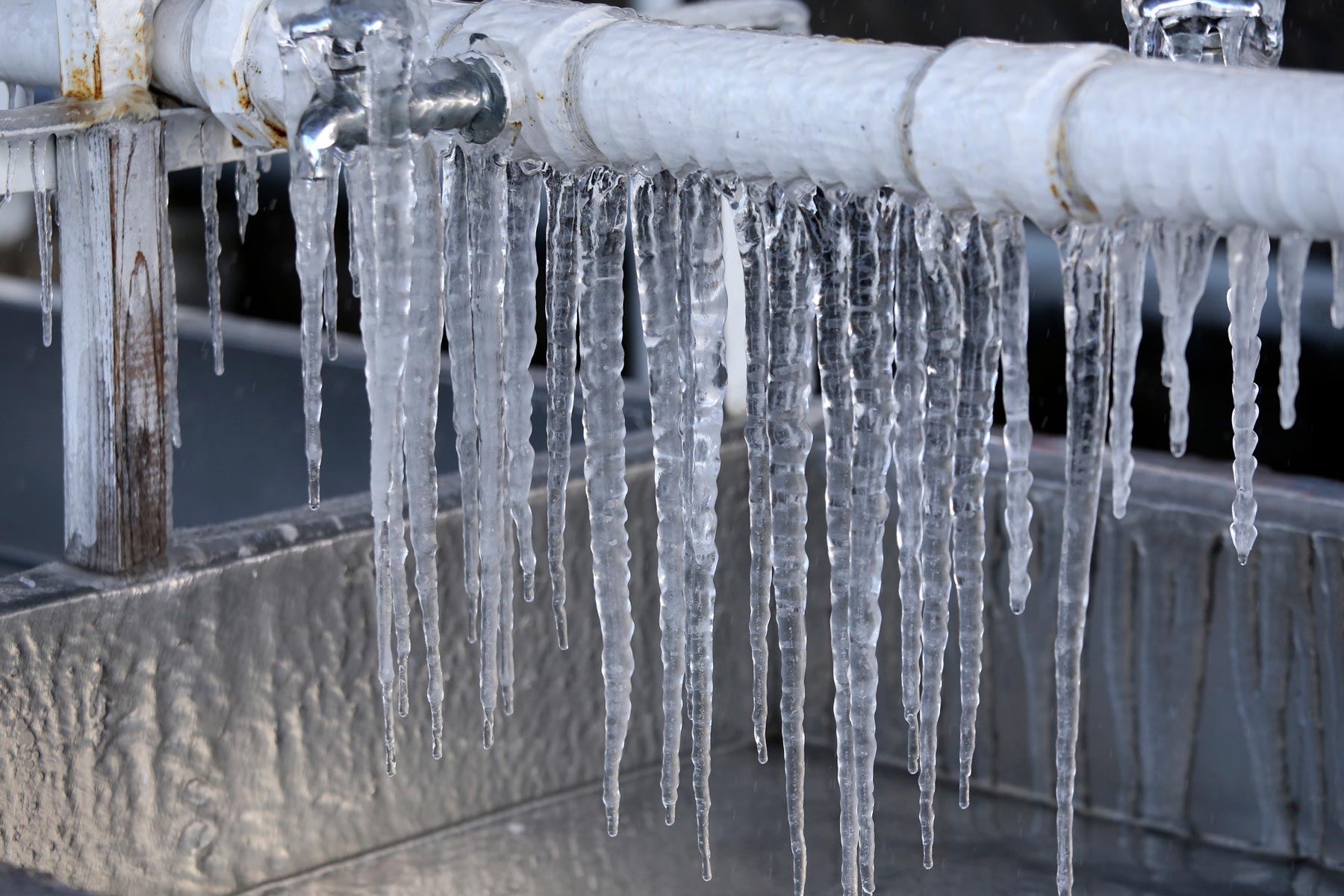Crucial Tips for Avoiding Frozen Pipes in Cold Weather Conditions
Crucial Tips for Avoiding Frozen Pipes in Cold Weather Conditions
Blog Article
We've found this great article involving Helpful Tips to Prevent Frozen Pipes this Winter down the page on the net and reckoned it made perfect sense to discuss it with you on this page.

Cold weather can wreak havoc on your pipes, particularly by freezing pipelines. Right here's just how to stop it from happening and what to do if it does.
Introduction
As temperatures drop, the risk of frozen pipelines rises, potentially bring about pricey repair work and water damage. Comprehending just how to stop frozen pipelines is vital for home owners in cold environments.
Prevention Tips
Shielding susceptible pipelines
Cover pipes in insulation sleeves or use warmth tape to safeguard them from freezing temperature levels. Focus on pipelines in unheated or outside locations of the home.
Heating strategies
Keep interior rooms effectively heated up, especially locations with plumbing. Open closet doors to allow warm air to distribute around pipelines under sinks.
How to determine frozen pipes
Look for reduced water flow from taps, unusual odors or noises from pipes, and visible frost on exposed pipelines.
Long-Term Solutions
Architectural modifications
Think about rerouting pipelines away from outside walls or unheated areas. Include additional insulation to attics, cellars, and crawl spaces.
Upgrading insulation
Purchase premium insulation for pipelines, attics, and walls. Appropriate insulation helps keep constant temperature levels and decreases the danger of frozen pipelines.
Safeguarding Outdoor Plumbing
Yard hoses and outdoor faucets
Separate and drain pipes garden pipes before wintertime. Set up frost-proof faucets or cover outside taps with shielded caps.
Understanding Icy Pipelines
What triggers pipes to freeze?
Pipes ice up when subjected to temperatures listed below 32 ° F (0 ° C) for expanded durations. As water inside the pipes ices up, it increases, putting pressure on the pipe walls and potentially triggering them to break.
Threats and problems
Frozen pipes can cause water supply disruptions, residential property damage, and pricey fixings. Burst pipelines can flood homes and create comprehensive structural damage.
Signs of Frozen Piping
Identifying icy pipelines early can avoid them from bursting.
What to Do If Your Pipes Freeze
Immediate actions to take
If you believe icy pipes, keep faucets open up to relieve stress as the ice thaws. Use a hairdryer or towels taken in hot water to thaw pipelines gradually.
Final thought
Avoiding frozen pipelines needs positive steps and fast responses. By comprehending the causes, indications, and preventive measures, home owners can safeguard their pipes during winter.
Helpful Tips to Prevent Frozen Pipes this Winter
UNDERSTANDING THE BASICS: WHY PIPES FREEZE AND WHY IT’S A PROBLEM
Water freezing inside pipes is common during the winter months, but understanding why pipes freeze, and the potential problems it can cause is crucial in preventing such incidents. This section will delve into the basics of why pipes freeze and the associated problems that may arise.
THE SCIENCE BEHIND FROZEN PIPES
When water reaches freezing temperatures, it undergoes a physical transformation and solidifies into ice. This expansion of water as it freezes is the primary reason pipes can burst. As the water inside the pipe freezes, it expands, creating immense pressure on the walls. If the pressure becomes too great, the pipe can crack or rupture, leading to leaks and water damage.
FACTORS THAT CONTRIBUTE TO PIPE FREEZING
Low Temperatures: Extremely cold weather, especially below freezing, increases the risk of pipes freezing. Uninsulated or Poorly Insulated Pipes: Pipes located in unheated areas, such as basements, crawl spaces, or attics, are more prone to freezing. Insufficient insulation or lack of insulation altogether exacerbates the problem. Exterior Wall Exposure: Pipes running along exterior walls are susceptible to freezing as they encounter colder temperatures outside. Lack of Heating or Temperature Regulation: Inadequate heating or inconsistent temperature control in your home can contribute to frozen pipes. PROBLEMS CAUSED BY FROZEN PIPES
- Pipe Bursting: As mentioned earlier, the expansion of water as it freezes can cause pipes to burst, resulting in significant water damage.
- Water Damage: When pipes burst, it can lead to flooding and water damage to your property, including walls, ceilings, flooring, and personal belongings.
- Structural Damage: Prolonged exposure to water from burst pipes can compromise the structural integrity of your home, leading to costly repairs.
- Mold and Mildew Growth: Excess moisture from water damage can create a favorable environment for mold and mildew growth, posing health risks to occupants.
- Disrupted Water Supply: Frozen pipes can also result in a complete or partial loss of water supply until the issue is resolved.
WHY CERTAIN PIPES ARE MORE PRONE TO FREEZING
- Location: Pipes located in unheated or poorly insulated areas, such as basements, crawl spaces, attics, or exterior walls, are at higher risk of freezing.
- Exterior Pipes: Outdoor pipes, such as those used for irrigation or exposed plumbing, are particularly vulnerable to freezing as they are directly exposed to the elements.
- Supply Lines: Pipes that carry water from the main water supply into your home, including the main water line, are critical to protect as freezing in these lines can affect your entire plumbing system.
- Underground Pipes: Pipes buried underground, such as those connected to sprinkler systems or outdoor faucets, can be susceptible to freezing if not properly insulated.
https://busybusy.com/blog/helpful-tips-to-prevent-frozen-pipes-this-winter/

I stumbled upon that blog posting on Prevent Frozen Pipes when doing a search on the internet. Do you know anybody else who is inquisitive about 6 Ways to Prevent Frozen Pipes? Be sure share it. Thank-you for taking the time to read it.
Call Today Report this page